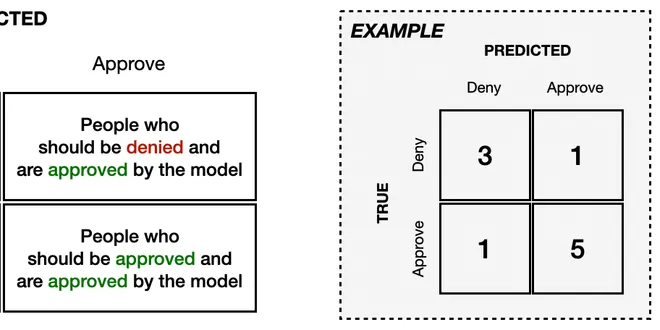ML Fairness Metrics&Auditing

Fairness Metrics Won’t Save You from Stereotyping
Fairness metrics are often used to verify that machine learning models do not produce unfair outcomes across racial/ethnic groups, gender categories, or other protected classes. Here, I will…
📚 Read more at Towards Data Science🔎 Find similar documents

Auditing Predictive A.I. Models for Bias and Fairness
For predictive A.I. models to impact more people, developers, psychologists, and outside parties must collaborate to assess them. Recently, two authors published a paper with guidance for conducting ...
📚 Read more at Towards AI🔎 Find similar documents

Fairness in Machine Learning (Part 1)
Contents Fainess in Machine Learning Evidence of the problem Fundamental concept: Discrimination, Bias, and Fairness 1. Fairness in Machine Learning Machine learning algorithms substantially affect ev...
📚 Read more at Towards AI🔎 Find similar documents

☝️⚖️ ML Fairness is Everybody’s Problem
📝 Editorial We typically associate fairness issues in machine learning (ML) models with large consumer tech startups like Facebook, Apple and Twitter. It seems easy enough to point the finger at bias...
📚 Read more at TheSequence🔎 Find similar documents

AI Fairness
Introduction There are many different ways of defining what we might look for in a fair machine learning (ML) model. For instance, say we're working with a model that approves (or denies) credit card...
📚 Read more at Kaggle Learn Courses🔎 Find similar documents

AI Fairness
Introduction There are many different ways of defining what we might look for in a fair machine learning (ML) model. For instance, say we're working with a model that approves (or denies) credit card...
📚 Read more at Kaggle Learn Courses🔎 Find similar documents

How to define fairness to detect and prevent discriminatory outcomes in Machine Learning
This can be achieved is by defining a metric that describes the notion of fairness in our model. For example, when looking at university admissions, we can compare admission rates of men and women…
📚 Read more at Towards Data Science🔎 Find similar documents

Can Auditable AI Improve Fairness in Models?
I was reading an article on Wired about the need for auditable AI. Which would be third party software evaluating bias in AI systems. While it sounded like a good idea. But I couldn’t help think it’s…...
📚 Read more at Towards AI🔎 Find similar documents


